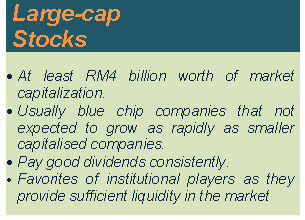Just read an article about
The Rise And Fall Of Interest Rates, this is some of the points
Loonie would like to share out:-
Definition
Interest rates is the rate of which interest is paid by a borrower to the lender for the use of money.
The use of interest rates by central banks to influence economic activity is know as monetary policy. It should be noted that the main objectives is to maintain price stability.i.e,stable inflation rate and the secondary objectives is to support economic growth.
What will happen by adjusting the interest rates? Look below,
a) A lower interest rate
Will results in strong demand of loans and will lead to increase in economic activities, as consumer borrow more to spend .i.e, big purchases like car / real estates, and businesses borrow to expand their operations. And at the same time stock market usually will goes up too.
But when a policy of keeping interest rates artificially low for an extended period and below the rate of inflation could lead to asset prices to rise well above their fundamental values. Over time, this will inevitble lead to a sharp retracement in asset prices and may have an adverse effects for the overall economy and may potentialy cause volatility in financial markets.
b) A hike in interest rates
Why there is an interest rate hikes? 1) Is to aimed at normalizing interest rates and 2) to contain inflationary pressures.
What happen next? An interest rate hikes will increased the cost of borrowing thus reduce loans growth causing investment and economic activities to slow down.
Conclusions
The interest rates movement is one of the many economic indicators that investors can monitor to help them make a better investment decision.
Just before I signed off, I would like to wish all christianity friends a Happy Easter Day.

















